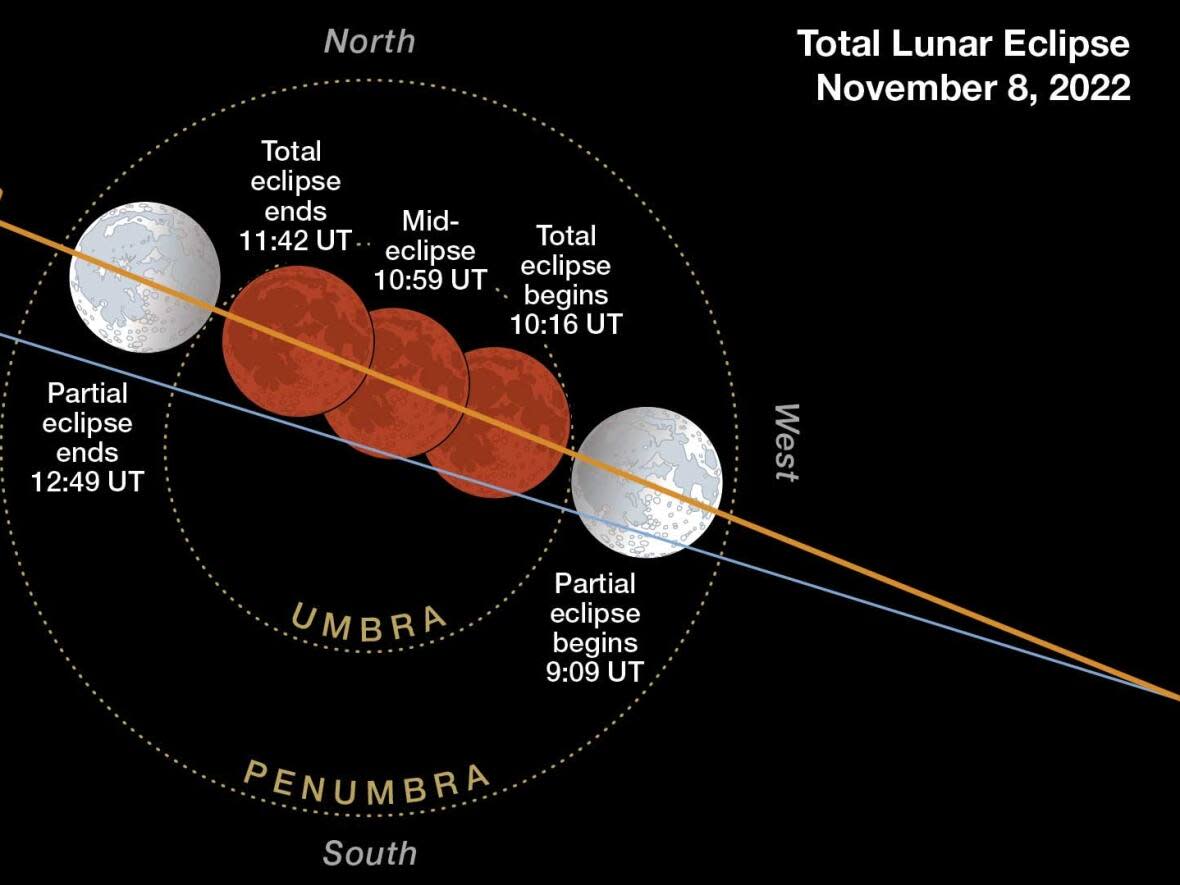Total lunar eclipse will be visible across N.L. on Tuesday morning — weather permitting

Early risers are in for a treat Tuesday morning.
A total lunar eclipse will peak in Newfoundland and Labrador between 6:15 and 6:45 a.m. NT, and you can watch it all unfold with the naked eye.
"This is such a fascinating phenomenon. It's my favourite astrological event," said Svetlana Barkanova, a physics professor at Memorial University's Grenfell Campus. "It's when you have the sun, moon and the Earth lining up. The Earth's shadow will fall over the moon, and the moon will turn red."
Known as the "blood moon," the eclipse will first be visible around 4:30 a.m., but Barkanova says the best time to view it in this province will be during the 6 a.m. hour.
"The moon will get below the horizon and then the sun will rise around 7, at which point it will be over for us."
Barkanova says all you need to see the eclipse is clear conditions with a view looking west.
"You also may want to find a location with an unobstructed view of the western horizon."
Barkanova said this is her favourite astrological event because there people won't need a telescope to see it.
"You don't need anything at all," Barkanova said. "This is such a unifying experience. Everyone can see it from everywhere all over the province."
Barkanova said she plans on just getting outside and looking at the sky, weather permitting.
"I will just be out there, enjoying the experience — if we have a clear morning, which I'm not sure about."
According to Environment Canada, Tuesday morning's forecast is calling for cloudy conditions across much of the province, which may affect the visibility of the eclipse. But Barkanova hopes the clouds might break enough to be able to see the blood moon in all its glory.
"It's just seeing our solar system at work."
Tuesday's total lunar eclipse will be the last of its kind until March 14, 2025, though partial lunar eclipses will be seen over the next three years.


